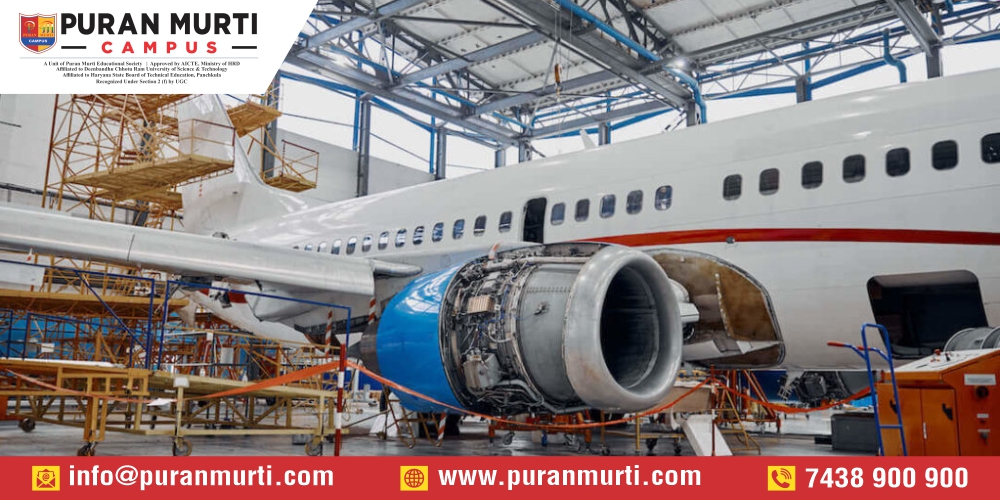The Role of Aeronautical Engineers in Modern Aviation
Posted on : 22 June, 2024 3:50 pm
Introduction
- Aeronautical engineering is a specialized field focused on the design, development, testing, and maintenance of aircraft and spacecraft. It blends principles from physics, mathematics, and materials science to create innovative solutions for aviation and space exploration. Aeronautical engineers work on various aspects, including aerodynamics, propulsion systems, avionics, and structural design, ensuring the safety, efficiency, and performance of flying vehicles. As aviation technology advances, aeronautical engineers play a crucial role in developing sustainable and cutting-edge aircraft, contributing to the evolution of modern transportation and exploration.
Design and Development of Aircraft
- The design and development of aircraft involve creating advanced blueprints and prototypes, considering aerodynamics, materials, and structural integrity. Aeronautical engineers use cutting-edge technology to model, test, and refine aircraft components. This process ensures optimal performance, safety, and efficiency, meeting rigorous industry standards and regulatory requirements. Continuous innovation drives the evolution of aircraft design, contributing to advancements in modern aviation.
Aerodynamics and Performance Optimization
- Aerodynamics and performance optimization are crucial in aeronautical engineering, focusing on reducing drag and improving lift for enhanced efficiency and speed. Engineers analyze airflow, use computational models, and conduct wind tunnel tests to refine aircraft shapes and surfaces. These efforts result in better fuel efficiency, reduced emissions, and superior overall performance in various flight conditions.
Materials and Structural Integrity
- Materials and structural integrity are vital in aeronautical engineering, ensuring aircraft durability and safety. Engineers select lightweight, high-strength materials like composites and alloys to withstand extreme conditions. They perform rigorous stress and fatigue tests to validate structural designs, enhancing reliability and performance while maintaining stringent safety standards for both commercial and military aviation.
Avionics and Control Systems
- Avionics and control systems are crucial in modern aircraft, managing navigation, communication, and flight control. Aeronautical engineers design and integrate advanced electronic systems to ensure precision and reliability. These systems enhance operational efficiency, safety, and situational awareness, enabling pilots to navigate complex airspaces and handle diverse flight conditions with confidence and accuracy.
Safety and Compliance
- Safety and compliance are vital in aeronautical engineering, ensuring all aircraft meet stringent regulations and standards. Engineers focus on designing and maintaining systems that enhance safety, conducting rigorous testing, and adhering to international guidelines. This commitment minimizes risks, prevents accidents, and ensures the highest levels of operational safety and reliability in the aviation industry.
Sustainable Aviation and Green Technologies
- Sustainable aviation and green technologies are revolutionizing the aerospace industry. Aeronautical engineers are developing eco-friendly materials, fuel-efficient engines, and alternative energy sources to reduce the environmental impact of aviation. Innovations like electric and hybrid aircraft, along with advancements in aerodynamic design, aim to decrease carbon emissions and promote a sustainable future for air travel.
Maintenance and Overhaul
- Maintenance and overhaul are critical in aeronautical engineering, ensuring aircraft remain safe and operational. Regular maintenance checks, repairs, and comprehensive overhauls extend the lifespan of aircraft and enhance performance. Aeronautical engineers develop and implement maintenance protocols, leveraging advanced diagnostics and predictive technologies to identify issues early, reduce downtime, and maintain the highest safety standards in aviation.
Unmanned Aerial Vehicles (UAVs)
- Unmanned Aerial Vehicles (UAVs) represent a significant advancement in aeronautical engineering. These drones are utilized for various applications, including surveillance, delivery, and scientific research. Engineers focus on improving UAV design, flight stability, and autonomy. The development of UAVs involves integrating cutting-edge technologies such as artificial intelligence, advanced sensors, and lightweight materials, revolutionizing the aviation industry.
Research and Development
- Research and development in aeronautical engineering drive innovation in aircraft technology. Engineers focus on improving aerodynamics, fuel efficiency, and safety through advanced simulations and experiments. R&D efforts also explore new materials, propulsion systems, and sustainable practices. This continuous pursuit of knowledge and technological advancements ensures the aviation industry meets future challenges and demands.
Conclusion
- Aeronautical engineers play a crucial role in advancing modern aviation. From designing and developing cutting-edge aircraft to ensuring safety and compliance, their expertise drives innovation and efficiency. The field’s focus on sustainable technologies and green practices highlights its commitment to environmental responsibility. With ongoing research and development, aeronautical engineers are set to meet future challenges, contributing to the industry’s growth and evolution. Their work ensures safer, more efficient, and environmentally friendly air travel, making them indispensable in shaping the future of aviation.

